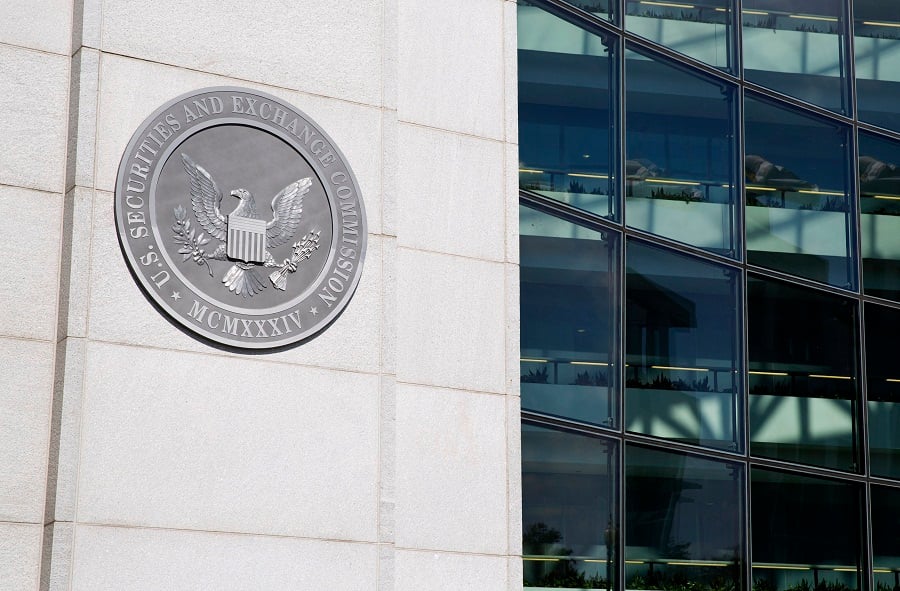

Although the Securities and Exchange Commission has wrapped up an initiative targeting conflicts of interest surrounding mutual funds fees, it demonstrated in an enforcement case last week that it’s still keenly focused on the topic.
Last Friday, the SEC ordered RBC Capital Markets to pay $3.9 million in disgorgement and penalties for failing to disclose that it sold some brokerage customers – charitable organizations and clients in retirement accounts – more expensive fund share classes even though less expensive share classes of the same fund were available.
According to the SEC settlement, from July 2012 through August 2017, RBC recommended share classes with upfront loads or high ongoing expenses when no-load classes were available. The agency also said that RBC didn't disclose that it would receive 12b-1 fees and compensation from the more expensive funds and that its doing so would reduce customers' returns.
“As a result of RBC's failures, approximately 4,571 customer accounts paid a total of $2,607,676 in sales charges, ongoing fees, and other expenses,” the SEC said in a statement accompanying the settlement.
RBC did not admit or deny the charges. The firm said it cooperated with the SEC in reviewing its funds.
“RBC Wealth Management is committed to ensuring the firm and all of its advisors operate in accordance with the regulations governing our industry,” the firm said in a statement. “In response to this particular issue, we converted affected accounts, as needed, to the correct mutual fund share class. We have also reviewed and updated all procedures and policies related to mutual fund share classes.”
The settlement was announced a week after the SEC concluded a more than two-year share-class initiative that encouraged financial firms to self-report failures to disclose conflicts of interest surrounding 12b-1 fees. The SEC said it returned more than $139 million to investors under the program.
The timing of the case was no accident, said Kurt Wolfe, an attorney at Troutman Sanders.
“This coming so closely on the heels of the initiative may be the SEC saying, ‘We have a continued interest in this type of misconduct,'” Wolfe said.
The SEC has made share-class disclosure an examination priority this year. The Financial Industry Regulatory Authority Inc. is also in the middle of a share-class probe involving 529 college savings plans.
“These are the types of cases the SEC and Finra love to bring and will continue to bring because they’re hyper-focused on retail investors,” Wolfe said.
Brokerage industry representatives have criticized the SEC’s share-class crackdown as “regulation by enforcement.” They say the agency did not explain its expectations about disclosure before launching a strike on what it said were violations.
Todd Cipperman, principal at Cipperman Compliance Services, said the SEC did not have to allege that RBC intentionally misled or harmed clients.
“Instead, the regulator can rely on the outcome that clients were in fact harmed, and, therefore (res ipsa loquitur), the firm failed to implement compliance systems to prevent it from recommending the wrong share classes,” Cipperman wrote in a blog post. “The SEC does not need to prove an evil heart or even carelessness to bring an enforcement action.”

Wealth managers highlight strategies for clients trying to retire before 65 without running out of money.

Shares of the online brokerage jumped as it reported a surge in trading, counting crypto transactions, though analysts remained largely unmoved.

President meets with ‘highly overrated globalist’ at the White House.

A new proposal could end the ban on promoting client reviews in states like California and Connecticut, giving state-registered advisors a level playing field with their SEC-registered peers.

Morningstar research data show improved retirement trajectories for self-directors and allocators placed in managed accounts.
Orion's Tom Wilson on delivering coordinated, high-touch service in a world where returns alone no longer set you apart.
Barely a decade old, registered index-linked annuities have quickly surged in popularity, thanks to their unique blend of protection and growth potential—an appealing option for investors looking to chart a steadier course through today's choppy market waters, says Myles Lambert, Brighthouse Financial.
